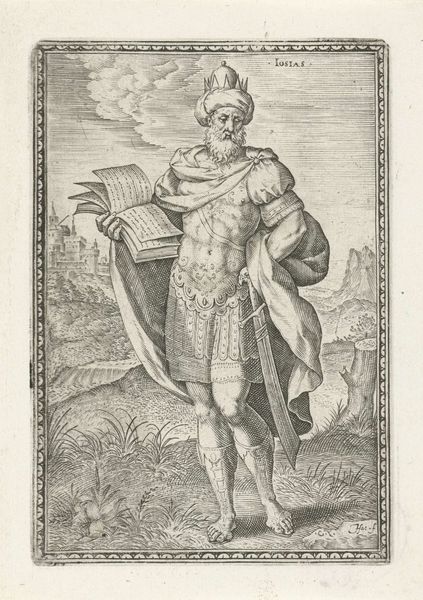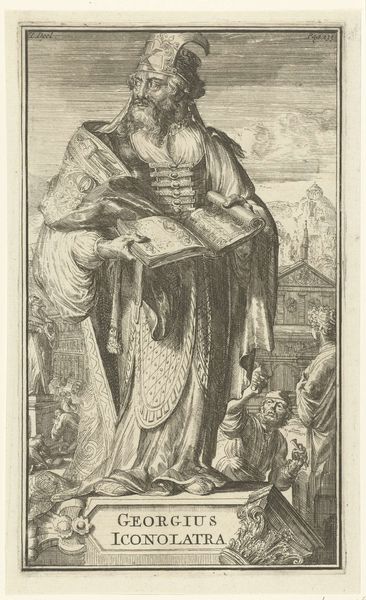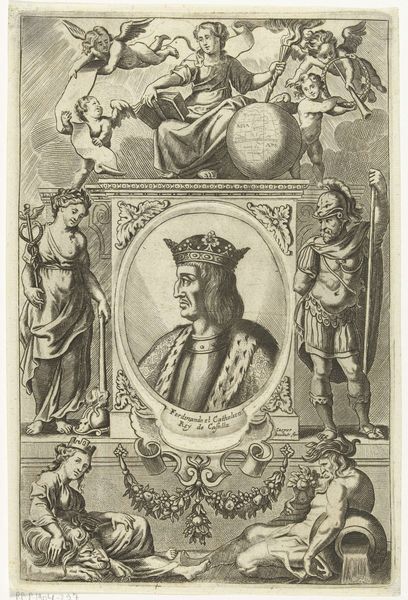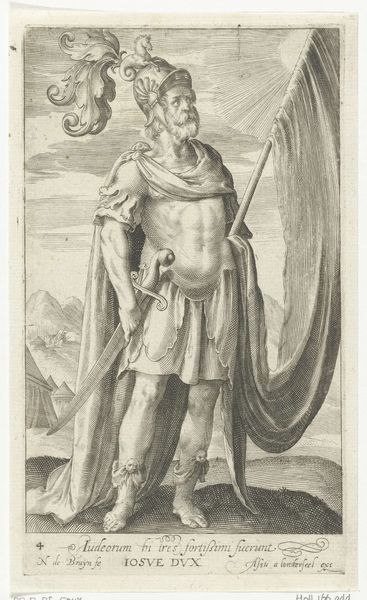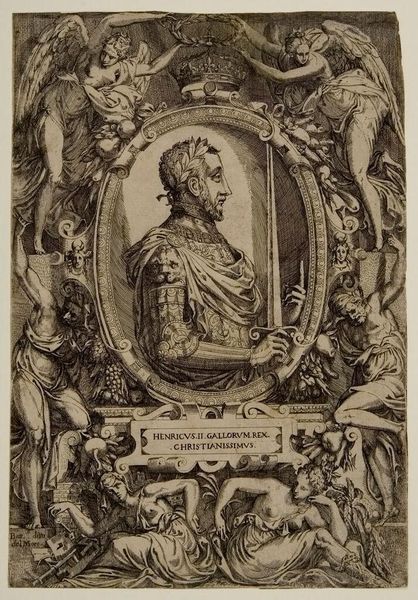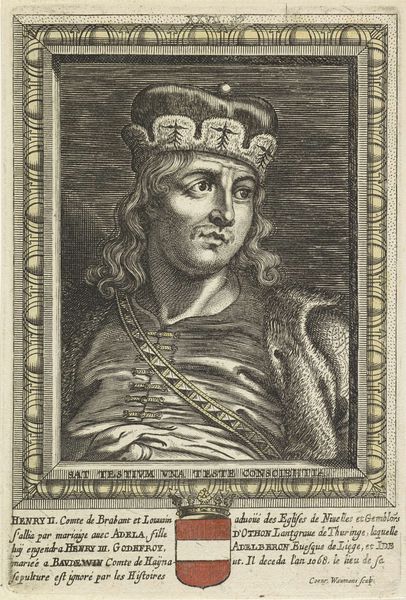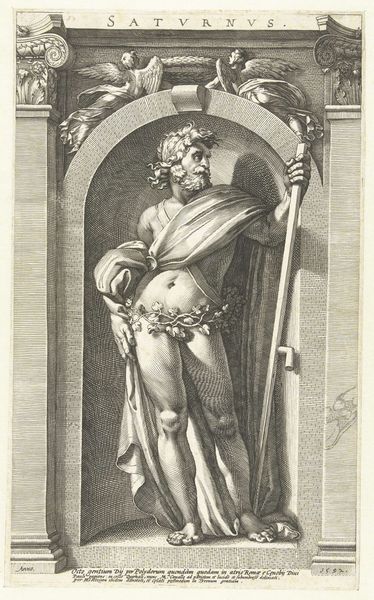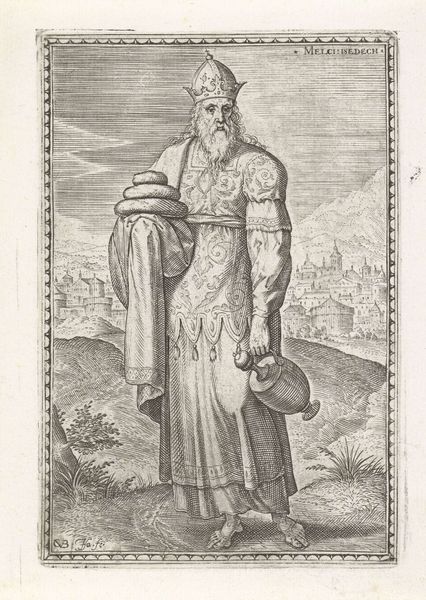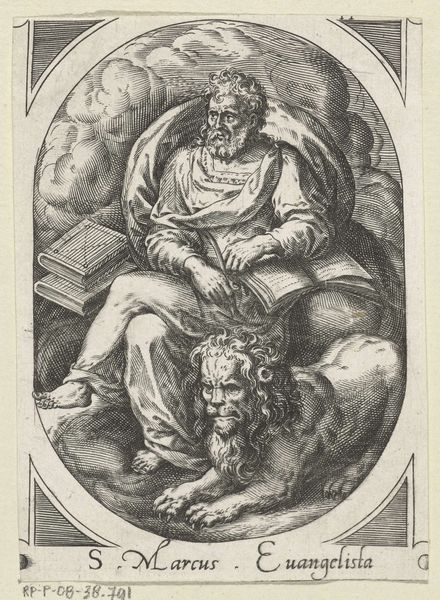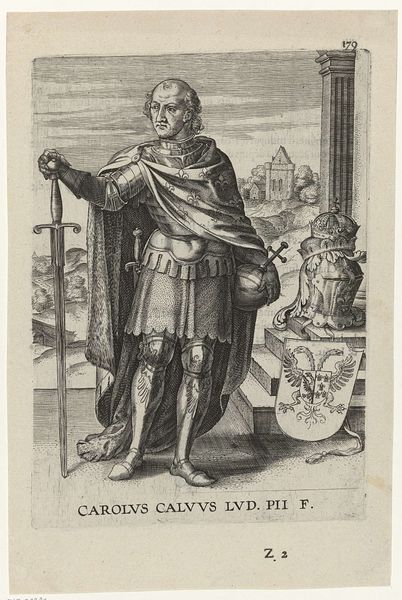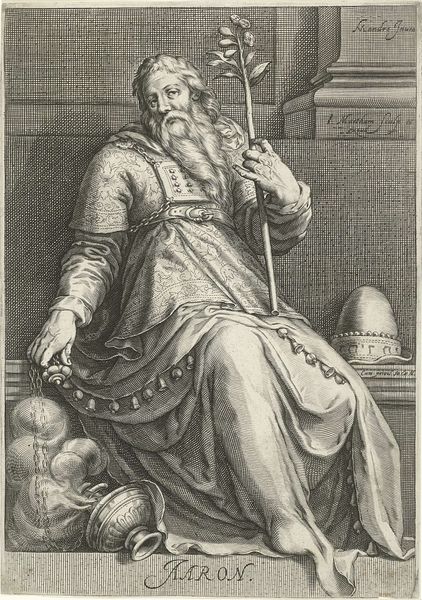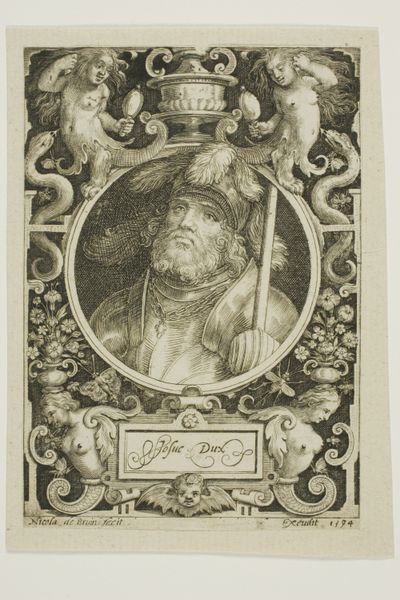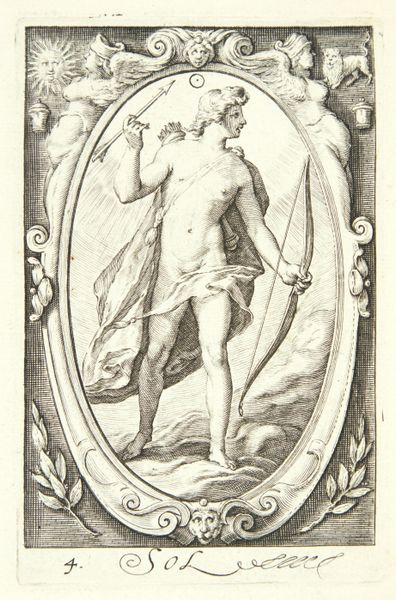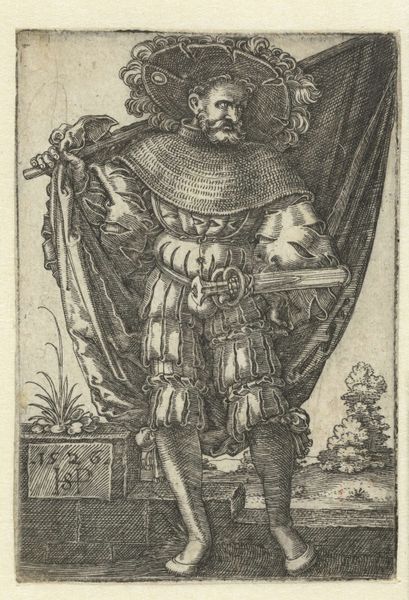
print, engraving
#
portrait
# print
#
pen sketch
#
old engraving style
#
mannerism
#
figuration
#
line
#
history-painting
#
engraving
Dimensions: height 114 mm, width 77 mm
Copyright: Rijks Museum: Open Domain
Johann Sadeler I created this engraving of King Solomon around 1600, and it's now held at the Rijksmuseum. As an engraving, it was made by meticulously cutting lines into a metal plate, applying ink, and pressing it onto paper. This was a highly skilled, labor-intensive process, demanding precision and control. Look closely, and you'll notice the fineness of the lines, creating subtle gradations of tone and texture. The material qualities of the engraving—the crispness of the lines, the contrast between light and shadow—all contribute to the overall impact of the image. The printmaking process, with its reliance on skilled artisans, was a key part of the expanding industry of visual communication and the circulation of ideas at this time. It’s important to remember that printmaking was not just a means of artistic expression, but also a trade, a way for artists to earn a living. The creation and distribution of prints like this were tied to wider social issues of labor, politics, and consumption. By emphasizing these factors, we can expand our understanding of the artwork.
Comments
No comments
Be the first to comment and join the conversation on the ultimate creative platform.
